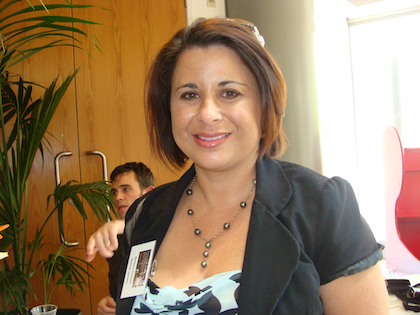
Hamish Fletcher
AUCKLAND: Although the obstacles facing investigative reporting in the Pacific loom large, it is an essential practice in challenging corruption and injustice in the region, says TVNZ’s Pacific correspondent Barbara Dreaver.
Speaking at this weekend’s Media, Investigative Journalism and Technology Conference at AUT University, Dreaver stressed the importance of investigative journalism in confronting Pacific “carpetbaggers, scam-artists and questionable deals”.
“Like a cockroach it’s really not easy to get rid of them – they just keep coming back,” she said.
“They keep coming back because there’s at least one dopey politician who is taken in by it, and this is why the media’s role is so vitally important.”
Dreaver screened examples of her own work where she had uncovered scandals and scheming crooks taking advantage of Pacific people.
Proudest moment
Dreaver said her proudest moment was a 2005 investigation into a Utah-based group which deceived Samoan parents into putting their children up for adoption in the United States, unaware they would never see them again.
“It was heartbreaking, because people could get away with it,” she said.
“All families without exception were poor and felt they were doing the right thing in sending [their children] away.”
For her efforts in breaking this story, Dreaver gained accolades at the 2005 Qantas Media Awards.
However, while TVNZ gives her the scope and resources to probe into and uncover Pacific scandals, Dreaver said the barriers facing this type of reporting are immense.
“Investigative reporting in daily news is as rare these days as an underpaid politician,” she said.
“It takes time and that’s a luxury organisations these days just can’t afford.”
Detail sacrificed
Moreover, Dreaver commented her chosen medium of television was also problematic for investigative journalism as it forces her to tell a complicated story in 90 seconds.
“I sacrifice detail,” she said. “A lot more gets left out than goes in.”
But Dreaver said this sacrifice was well worth getting Pacific stories out into the mainstream.
However, the barriers to investigative journalism are not just found internally within newsrooms but in the islands themselves and getting sources to trust journalists enough to go on the record.
As well as this, many Pacific governments do not take kindly to journalists probing their administration – Dreaver herself is banned
from Fiji.
‘Badge of honour’
“We were banned because we weren’t parachute journalists,” Dreaver said.
“I wear it like a badge of honour.”
Dreaver said the New Zealand mainstream media can do a far better job in reporting on the region.
She said many use the cultural gap as an excuse to not follow up on Pacific stories and that New Zealand journalists can utilise local reporters as a valuable tool to navigate the “complex weave” of Pacific culture.
“It’s a good partnership,” she said.
“There tends to be a reluctance to work with local journalists on the ground – to me it’s a no brainer.”
In rounding off her presentation, Dreaver said reporters need to ignore dissenting voices criticising the sharing of controversial Pacific stories.
“We do this job to make a difference,” she said.
“You can’t care about what people think about you. You have to be courageous.” - Pacific Scoop: Pacific Media Watch
Hamish Fletcher has been studying toward a Postgraduate Diploma in Communication Studies at AUT University. The conference was organised by the Pacific Media Centre.



